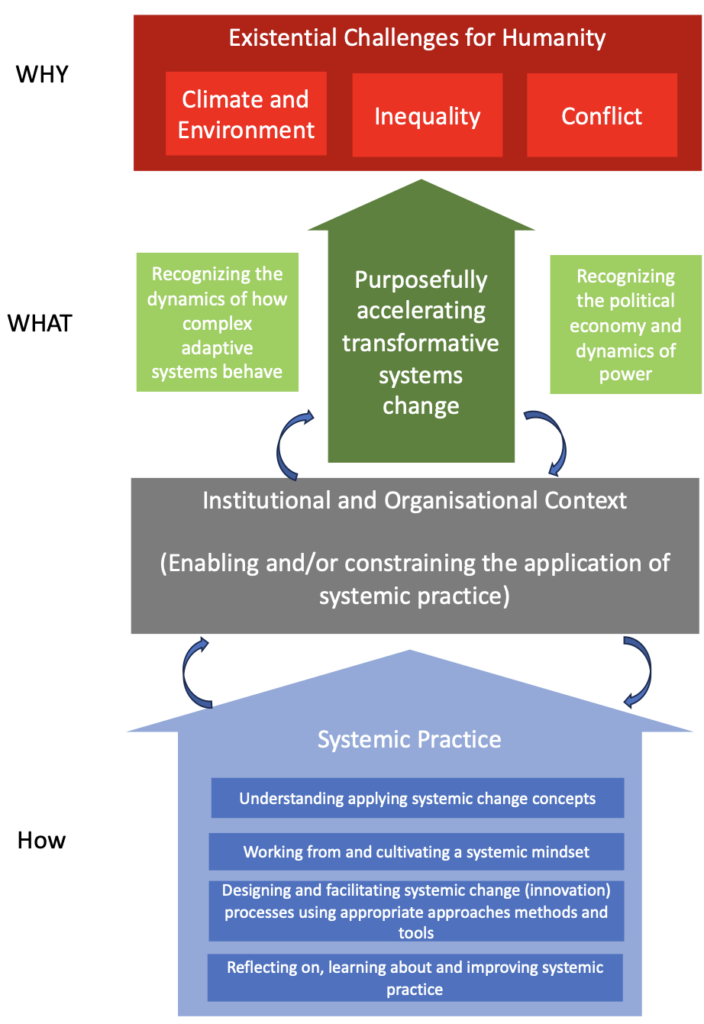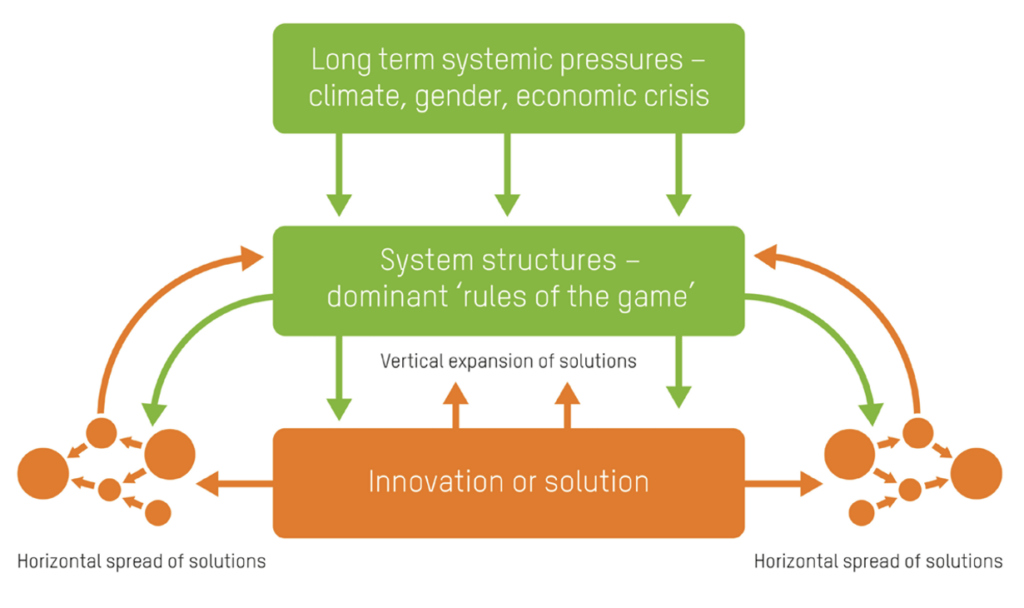Oxford, June 2023 – How can systems thinking and practice be embedded better in the work of global development organizations? This question prompted the Oxford Round Table on Systemic Change, with organizers connecting through recent work with the UK FCDO, Foresight4Food, the Asian Development Bank (ADB), Oxfam, and UNDP.
The event was organized by Jim Woodhill (Foresight4Food) and Irene Guijt (Oxfam Great Britain) with Susann Roth (Asian Development Bank) and brought together 14 development practitioners interested in and working actively on systemic change. Discussions during the roundtable focused on practical questions of capacity-building, scaling, and organizational uptake. The discussion aimed at:
- Exploring the utility of systems-related concepts, framing, and approaches.
- Sharing experiences, challenges, and opportunities for better embedding systems approaches in organizations and alliances.
- Looking at how to generate better knowledge resources and capacity development for practitioners keen to learn about systems-related concepts, framing, and approaches.
- Generating ideas for taking the agenda forward, for example, in terms of ongoing communities of practice, profiling systems work, developing resources, or future events.
In the collective experience of all participants with diverse theoretical foundations, working contexts, and methodological experiences, systems thinking, complexity science, foresight, and adaptive management can help deal with the wicked problems and intractable issues of the world. Therefore, the shared interest of the participants revolved around how to better apply a range of approaches in the organizations and alliances with which they work, particularly for applied knowledge, learning, and innovation.
The participants felt that systems or systemic practice is the core focus and the key concepts that resonated for them. At its simplest, systemic practice means a practice that relates to or affects an entire system. But as we are driven by visions for a more equal, greener and safer world. So systemic practice refers to the ways of purposefully intervening in socioecological systems (human and environmental systems) from a holistic and transdisciplinary perspective with recognition that such systems are complex and adaptive and hence evolve in self-organising ways that can be unpredictable.

Participants shared different insights and stories from systems change and a pattern started to emerge from them. These include emergent strategies with bold change vision and a multi-year evolution, more than one purpose, intentional scaling, power and direction-setting dilemmas, collective visioning, Influential players and divide-bridging conversations, success as a shifting journey of negotiated goal realignment, distributed experimentation, facilitating change, changing roles, Institutional mechanisms needed to kickstart, not least to fund implementation, and making feedback visible and regular.

Participants in the event found the informal opportunity to share and learn from across their diverse backgrounds valuable and inspiring. There was a strong sense that creating follow up opportunities for engagement, bringing on board those interested, but not able to attend this event, would be highly appreciated.